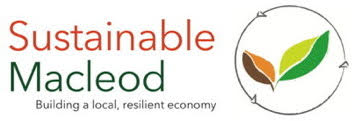Which mulch?

Last year, prices for organic mulch were at record highs with lucerne bales $60 each. The news this year is better but by no means is mulch cheap. Lucerne is down to $32.95, pea straw $24.95, wheat straw $19.95 per bale and sugar cane mulch is $17.95 a pack. What are we to do?
Mulch is important for five reasons. Most importantly, it stops the soil surface drying out and helps retain moisture in the soil. It also prevents weeds growing and seeds germinating, and adds organic material to the soil, improving its health and aeration. It insulates the soil, keeping the soil temperature consistent and it prevents compaction caused by heavy rain.
There are a great many materials that can be used for mulching. Some are suitable for the vegie garden which generally needs a pH of 6 -7, some for trees and some for acid loving plants requiring a pH of 5.5 and below but all require careful application. Those such as wood shavings and sawdust rob the soil of nitrogen (good for keeping paths weed free for that reason) and should be avoided, though they can be added to the compost.
Lucerne mulch is rich in potassium, calcium, iron and folic acid and increases nitrogen in the soil. Pea straw is high in nitrogen, significantly improves soil microbiology and provides excellent worm food. Spread both 40 – 100mm deep on new beds and 20 – 40mm if refreshing beds previously mulched. Sugar cane mulch has a low pH and should be mixed with some dolomite to balance it. It is quite fine and can mat, providing a bedding for creeping weeds such as chickweed but as it breaks down rapidly, it does benefit the soil microbiology quickly. It is more expensive in the long run than either lucerne or pea straw because of its rapid decomposition. Spread it to a depth of between 40 -100mm, first soaking it by inserting the hose into the pack until really wet. In fact, soaking lucerne and pea straw in this way is also a good idea as it prevents them blowing away, is an easy way to moisten them, and dampens down allergens.
Other readily available mulches – often free – include grass clippings, leaves and coffee grounds and coffee husks. All must be applied very lightly as they can mat and also produce an unpleasant odour. Grass should be dried and spread thinly. It will add nitrogen as it breaks down. Avoid grass clippings with dog faeces and those cut from lawns that have been sprayed with pesticides to kill weeds. As a green material, grass clippings will support soil bacteria.
Leaves break down slowly and to prevent matting also need to be spread very thinly. If green they support bacteria, if brown fungi. Coffee husks by themselves are a disaster as they turn into a heavy, rancorous mat but with coffee grounds rubbed through them by hand (a somewhat tedious job) they are usable and will improve the soil.
Fruit trees do well with wood chip*. At this time of year (spring/summer), pull back any mulch to the drip line of the tree and ring the drip line with 60 – 80mm width and height of wood chip. This encourages fungi, and also worms which take the mulch underground and shred it, creating a soil food web. Lucerne and pea straw are suitable, but more expensive, alternatives.
Acid-loving plants such as blueberries and passionfruit require an acid mulch. Pine needles when aged are very suitable but unaged they contain terpenes which are chemicals that are toxic to many plants. Cedar chips also contain these.
Mushroom compost on the other hand is quite alkaline, and very useful if your soil is too acid and you want to move it towards neutrality or even slight alkalinity. It will add organic matter to your soil.
Kelp seaweed is my favourite mulch but unfortunately is almost impossible to get, and it is illegal to collect it from beaches these days. It provides sodium, boron, in which soils in our area are deficient, and other trace elements plus nitrogen and potash.
Growing a green manure crop is a cheap and quick form of mulching. Once mature, cut the plants at ground level and spread them on the surface. Leave the roots in the ground and they will provide runnels for water to enter the soil.
Mulch is essential in the garden and every effort needs to be made to protect and improve our soil through judicious application. As mulches can be dusty and contain allergens, be safe by wearing a mask while spreading it.
*Macleod Organic Community Garden has free wood chip mulch which is supplied by local contractors and would otherwise go to landfill. Turn up at the garden with bags, tubs or trailers on Wednesdays or Saturdays between 1pm – 4pm and take as much as you like. Bring a fork or spade!
Written by Robin Gale-Baker
First published in the Local Food Connect newsletter 2019 as ‘Mulch crisis!’. Modified and updated December 2020.
